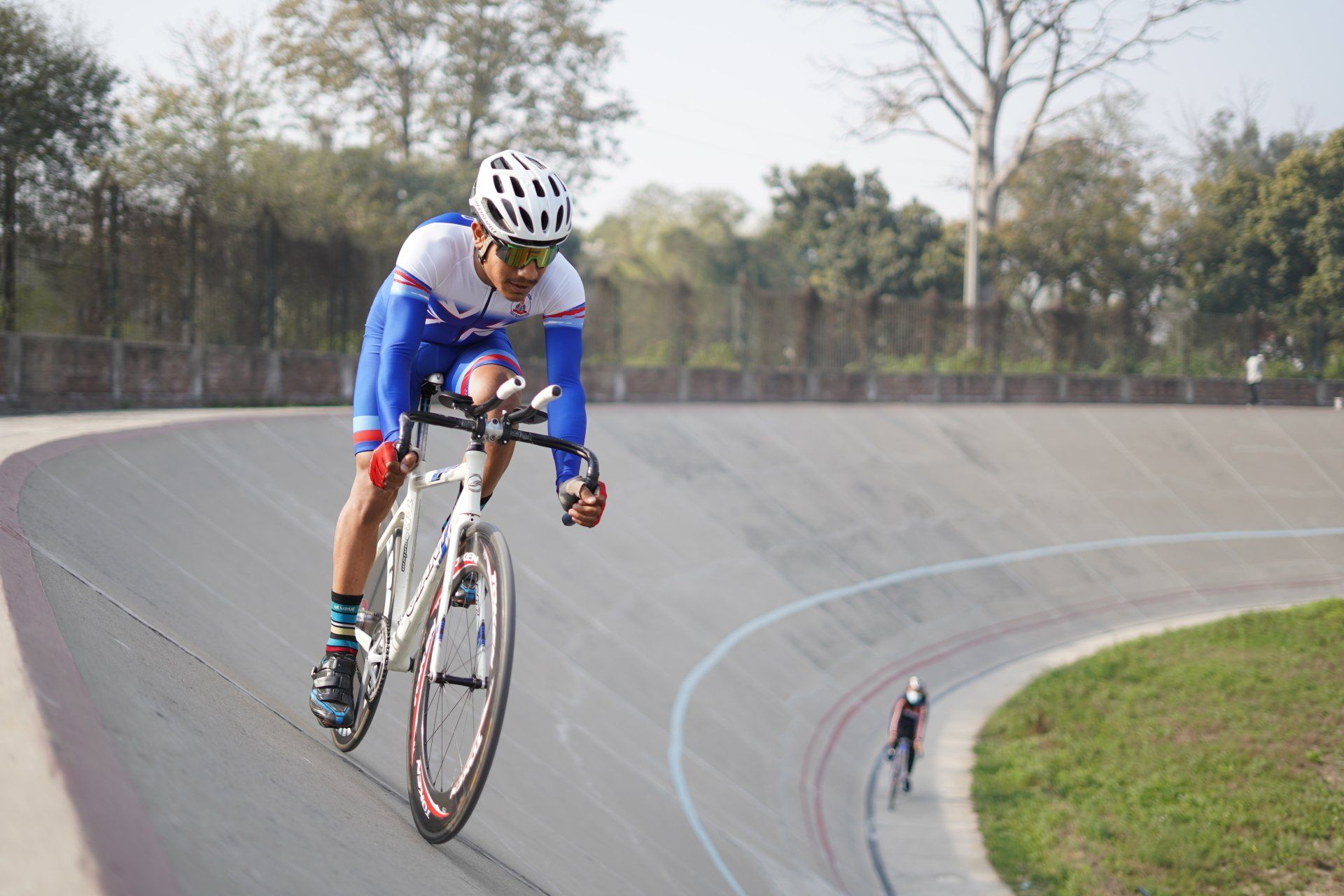Sport psychology matters. Anxiety, plateaus, and life balance are athletes' most common mental challenges.
Athletes love to push themselves. They strive to reach their goals. Typically though, athletes encounter mental barriers to their performance.
The three most common barriers are anxiety, plateaus, and life balance. These three are always present, lurking in background, ready to interfere if not addressed.
Watch the Video: The Top 3 Mental Barriers to Athletic Performance
The Inner Game of Sports
When you reach an elite level in your sport, it's the inner game, the mental game, that moves the needle.
Yet many athletes are reluctant to venture into the mental realm. Why? Because it's uncharted waters. But like anything new, once you dive in, you adapt.
In this post, you'll learn how to leverage anxiety to your advantage. You'll also learn ways to level-up to the next plateau. Finally, you'll learn about life balance and how it can help you get better results in the sport you love.
Anxiety: What Could Go Wrong?
The most common mental barrier to athletic performance is anxiety. From normal pre-competition jitters to paralyzing fear, all athletes deal with anxiety.
Even legends like Steve Young of the San Francisco 49ers have suffered from anxiety. In his book,
My Life Behind the Spiral, Young recounts debilitating anxiety, where he would throw up and not sleep for days before a big game.
But athletes don't have to suffer. Steve Young finally faced his fears, got help from a therapist, and tamed his anxiety. You too can "take a page" from Young's book, and tackle your anxiety.
Here's an exercise that can help: Take out a piece of paper. Write down everything that you think could go wrong in an upcoming game or competition.
Next, rate the likelihood of each thing going wrong on a scale of 0 to 10, with 10 being highest. Be realistic. Use reason, not emotion.
Now, pick the top one or two most feared outcomes and ask yourself what you can do to
proactively reduce the likelihood of a negative outcome.
Most likely you will identify some kind of action to take. This could be as simple as talking to a coach, teammate, or friend about your fear. Two brains are always better than one for solving problems. As you take action, anxiety diminishes.
Anxiety: What Could Go RIGHT?
The next thing you can do is list all the scenarios you think could go RIGHT at your game or competition. Rate the likelihood of them going right on a scale of 0 to 10, with 10 being highest.
Pick the
lowest ranking scenarios and decide on what action you can take to bump up the likelihood of a positive outcome. Do you need to train more? Rest more? Practice your free-throw shooting? Take some action.
If you can't figure out what action to take, talk to a coach, a teammate, or do some reflective journaling. The appropriate action will present itself.
The point here is to get all of these concerns out of your head… and onto paper. Making an action plan will reduce your anxiety before your next competition.
Even if you don't achieve your desired outcome, at least you took action. The more you do that, the more you change your relationship to anxiety. Instead of anxiety being something to avoid, it becomes an opportunity, a call to action.
Hitting Plateaus in Sports
The second most common mental barrier is plateaus. This is when you arrive at a level
in your sport where things are predictable and there are fewer challenges.
If you're competitive and thrive on challenges, staying on a plateau for too long will feel like stagnation. You'll stop growing, you'll get restless.
But jumping to the next level can be daunting, right? What will happen? Will you be successful?
You may be so daunted that you convince yourself that the next
plateau is not for you, that it's only for super champions, genetic freaks, elitists. This could be
negative self-talk trying to protect you from potential disappointment.
But what's the worst that could happen if you don't jump to the next level? Well, nothing really, except some disappointment.
Did you know that two great baseball legends, Babe Ruth and Alex Rodriguez, both got booted down to the minor leagues?
That's right, they pushed their way into the majors, only to be kicked out! Were they disappointed? Probably. Did they quit? Nope. They dove back in and got to their next plateau.
So, are you ready to dive in? Are you ready to get uncomfortable and strive for more in your sport?
If the answer is yes, then it's time to start putting yourself in situations that force you to level up.
If you play a team sport, ask your coach for more game time, do extra practice drills, go to bed earlier... start behaving like you are already on a higher level.
If you do an individual sport like running or triathlons, enter the bigger races,
train with people faster than you, or find a coach to push you.
There's a lot of things you can do to commit to getting to the next level. Be like Babe Ruth and swing for the fences!
Life Balance for Athletes
Life balance is the third major mental barrier. Life balance simply means that the domains of your life are in control. There's no drama, no crisis brewing.
If you’re an athlete, you are probably good at controlling the sport domain of your life. While this is good for your sport, it can lead to ignoring other important aspects of your life.
Then before you know it, a problem that was simmering on the back burner boils over into a crisis. You’re thrown off your game, and your sport performance suffers.
There are numerous examples of professional athletes who have ignored the domains of their life and not dealt with their problems. The result? Chaos. Mike Tyson, Darryl Strawberry, and figure skater Tonya Harding come to mind.
It seems obvious that discord in one part of your life will negatively impact your sport. Yet too many athletes play the denial game. They grow distant from their spouse, or they ignore their finances. Then one day, boom! Divorce, bankruptcy, or worse. Think that might impact your sport? You bet it will.
To keep your life in balance, here's another exercise that can help: Write down all the domains of your life. This can be your sport, your job, your marriage, your family, friends, a hobby, your finances, etc.
Essentially, break down your life into its most important parts. Next, rate the health of each domain on a scale of 0-10 with 10 being best.
Typically, there's going to be a couple of domains that score on the low end, and some that score on the high end.
For the domains you're scoring low on, that means you want to take some action and make those healthier.
Need to have a hard conversation with your significant other? Do it. Need to make a budget or invest your money? Take one small action today. Nip those problems in the bud.
Go back and do this "life domains assessment" on a regular basis to keep chaos at bay. Your sport will thank you.
Conclusion
Well, there you have it. The three most common mental barriers to sport performance. Anxiety, plateaus, and life balance.
My hope is that this blog post gives you a few simple tools to help you in your sport, and in your life.
Finally, I would be remiss if I didn't mention the importance of not taking your sport too seriously.
This doesn't mean you don't go for it 100%. It means you don't beat yourself up if you're not progressing the way you had hoped. It's okay to adjust your goals.
Also, don't fall into the all-too-common comparison trap. What works for one athlete, may not work for you, and vice-versa. For more on this,
check out my Instagram post.
If you have questions about sport performance or are considering counseling, feel free to reach out and schedule your free phone consultation or learn more on my services page
counseling for athletes
“Not only in running, but in much of life, is a sense of balance and proportion necessary.”
-Clarence DeMar, winner of seven Boston Marathons.






